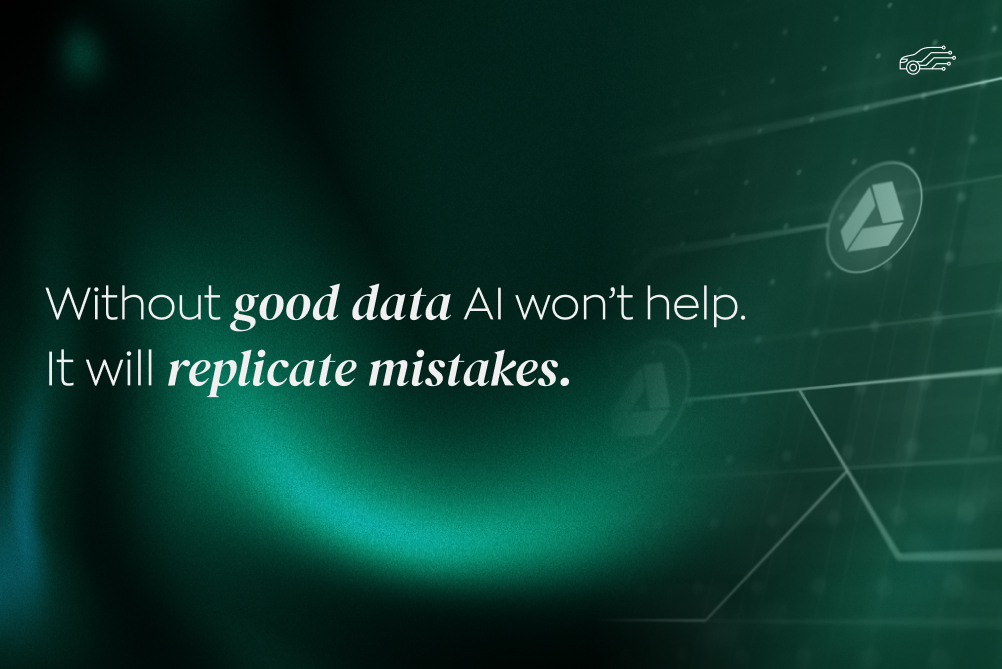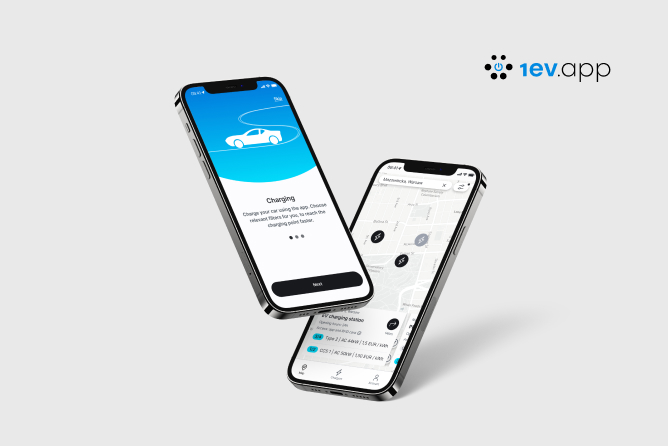Introduction
Artificial Intelligence (AI) is no longer a figment of science fiction; it has become a pivotal element in software development. As the digital landscape evolves, the seamless integration of diverse software components has become critical in building robust, efficient, and scalable systems.
But gone are the days when this integration was a complex, time-consuming process. Enter the era of AI-generated APIs (Application Programming Interfaces) - a technological innovation revolutionizing how software systems communicate.
Through the lens of this article, we will delve deeper into how AI-generated APIs are transforming the software development sector, reshaping integration processes, and accelerating the trajectory toward more robust software systems.
Stay with us as we unravel the transformative power of AI in the realm of software development.
The emergence of AI in software development
Traditionally, software development is a long, laborious process with manual coding and frequent iterations. These processes were often fraught with errors, inefficiencies, and delays, leading to a persistent quest for more effective solutions.
The emergence of AI in the early 21st century changed this narrative. AI was originally only used to automate repetitive tasks and simplify coding. For example, AI-enabled tools could automatically detect and correct coding errors, significantly reducing the time needed for debugging.
Machine learning algorithms were employed to predict potential system failures or bugs, enabling developers to address these issues preemptively.
As AI continued to evolve, its role in software development began to expand. A significant milestone was the introduction of AI-generated APIs, which represented a paradigm shift in integrating software components.
These AI-generated APIs automate the process of connecting different software components, making building complex systems more accessible and more efficient.
Today, AI's influence on software development is both profound and pervasive. From streamlining workflows to predictive coding and now AI-generated APIs, AI has genuinely transformed the software development landscape.
As we look to the future, we can only expect this influence to grow, heralding an era where software development is more efficient, effective, and innovative than ever before.
Read more about the evolution of AI in software development on our blog.
The impact of AI-generated APIs on integration processes
AI-generated APIs reinvent how software components interact, offering a new efficiency level in integration processes. Let's delve into the transformative impact of these innovative tools on the current integration landscape.
Understanding traditional integration challenges
The process of software integration has historically been fraught with numerous challenges. Developers often face issues concerning compatibility between different software components, leading to time-consuming debugging and testing efforts.
Additionally, manual integration can be tedious and require extensive knowledge and expertise in various software systems. This complexity increases exponentially with the development size and complexity of the system.
AI-generated APIs: A paradigm shift
AI presents a revolutionary solution to these integration challenges. AI-generated APIs can automatically adapt to changes in software components, reducing the amount of manual work needed.
They can understand and interpret different software components' functionality, making them easier to connect and integrate. For instance, APIs generated by AI can expediently handle changes in databases or new software versions, a task that would require substantial effort and time if done manually.
Benefits for developers
AI-generated APIs offer many benefits for developers. By automating the integration process, they free developers from the laborious task of manually connecting different software components.
Automating these processes allows developers to focus their energy and expertise on more critical aspects of software development, like designing efficient algorithms or enhancing user experience.
Additionally, AI-generated APIs enhance software reliability by reducing the likelihood of integration-related bugs. This streamlined process leads to robust software systems and faster development cycles.
.jpg)
How AI-generated APIs are streamlining software development
AI-generated APIs are fundamentally transforming the software development landscape. Their emergence has streamlined complex processes, making development faster, more efficient, and more reliable.
Automated code generation
AI has revolutionized the way we generate code. Now, AI-generated APIs can automatically create code snippets based on the requirements of a particular program. These snippets significantly reduce the time developers spend writing and debugging code.
With its ability to learn and adapt, AI can generate error-free code snippets that perfectly fit into the larger codebase, making the software development process more efficient.
Adaptive integration
AI's ability to adapt and tailor integration processes to specific project needs is another crucial area in streamlining software development. It can intelligently analyze the software components that need to be integrated and determine the most efficient way.
This adaptive integration process leads to a smoother workflow and enhanced outcomes. For instance, AI-generated APIs were instrumental in seamlessly integrating complex software components in major tech companies, improving software performance and reliability.
Real-time collaboration
AI-generated APIs are also fostering real-time collaboration among development teams. With AI, teams can work on different aspects of the software simultaneously and instantly update any changes made across the board.
This streamlined process allows for more cohesive collaboration and faster development cycles. The advent of AI in software development has brought about a paradigm shift, making the development process more efficient and user-friendly.
Case studies: successful implementations of AI-generated APIs
Case studies provide a valuable tool for illustrating AI-generated APIs' real-world impact and effectiveness.
We can thoroughly understand its potential and learn how best to apply these technologies by examining specific instances where a successful AI implementation occurs.
Netflix
One such example is Netflix, the popular streaming service. Netflix has utilized AI-driven APIs to improve content recommendation algorithms.
These APIs can provide personalized content recommendations by analyzing user behavior and preferences, improving user experience, and increasing viewer engagement.
The result has been an uptick in viewer retention, demonstrating a measurable outcome of AI implementation.
IBM’s Watson
In the healthcare sector, AI APIs have revolutionized patient care and management.
For instance, IBM's Watson Health employs AI APIs to analyze vast patient data, enabling healthcare providers to make well-informed decisions quickly.
This analysis has led to better patient outcomes and increased efficiency in healthcare provision.
Amazon
Lastly, AI-generated APIs have also found success in the e-commerce industry.
Amazon, for example, uses AI to streamline its logistics and delivery processes.
By predicting demand and optimizing delivery routes, Amazon can ensure the timely delivery of products, enhancing customer satisfaction and reducing operational costs.
These case studies provide concrete evidence of the transformative power of AI-generated APIs across various industries. They underscore the vast potential for AI to revolutionize various aspects of business operations, paving the way for enhanced efficiency and improved outcomes.
The future of software development: AI-generated APIs
The dawn of AI-generated APIs heralds a new era in software development, promising to reshape our technological landscape. As we look ahead, it's essential to explore how these intelligent tools will shape the future of innovation and streamline operations across sectors.
Advancements on the horizon
As we look to the future, we can see a world where AI-generated APIs become even more advanced and integral to software development. With machine learning algorithms getting more sophisticated, AI-generated APIs will likely be capable of handling even more complex tasks and making more accurate predictions.
This progression could lead to more efficient, effective, and adaptable APIs that make real-time adjustments based on environmental changes or evolving business needs.
Industry adoption
The adoption of AI-generated APIs will become widespread across industries. As businesses recognize the efficiency and innovation these APIs bring, their implementation will become more common. From healthcare to e-commerce, logistics to marketing, AI-generated APIs will permeate the fabric of almost all sectors.
The potential impact on the software development landscape is significant. With AI-generated APIs, developers can free up time spent on repetitive tasks, focusing on more strategic aspects of software development. This shift could lead to more innovative applications and solutions, ultimately driving industry growth and development.
Why choose AI and machine learning services
AI and machine learning services can be a game-changer for businesses across various industries. They have the potential to revolutionize business operations, providing a competitive edge and driving growth.
Enhanced customer experience
AI-generated APIs revolutionize customer experience by leveraging data analytics and predictive models. These APIs unveil insights into customer behaviors, preferences, and needs, allowing businesses to personalize interactions and offerings, elevating satisfaction and loyalty.
Picture an e-commerce platform suggesting products based on browsing history and purchase patterns, resulting in skyrocketing conversion rates.
Efficient decision-making
Businesses can make data-driven decisions in real-time with the help of AI-generated APIs. These APIs can continuously monitor data streams, identify patterns, and generate insights, providing valuable information to decision-makers.
This advanced monitoring enables businesses to respond quickly to changing market trends and customer needs, gaining a competitive advantage.
Robust security
AI-generated APIs can also vitally enhance security measures. These APIs can help identify potential cybersecurity threats in real-time by continuously monitoring data streams and detecting anomalies.
This proactive approach enables businesses to prevent security breaches, protect sensitive data, and maintain customer trust.
If you're serious about elevating your business, AI and machine learning services will make the difference. By partnering with an expert provider, you can integrate AI and ML services seamlessly into your existing systems and rapidly increase efficiency.
Qarbon IT is an excellent choice for these services, offering comprehensive AI and ML services that promise seamless integration.
Conclusion
Artificial intelligence (AI) and machine learning (ML) have revolutionized software development, ushering in an era in which AI generates APIs. This groundbreaking development has expedited processes, improved efficiency, and unlocked new possibilities for developers and the industry.
With AI-generated APIs, developers can eliminate tedious tasks, focus on high-level problems, and create more innovative and robust software solutions. AI and ML have significantly streamlined various business operations, giving rise to data-driven decisions and opening doors to numerous untapped opportunities.
.jpg)






.jpg)

.jpg)
.jpg)
.jpg)
.jpg)
.jpg)
.jpg)
.jpg)
.jpg)
.jpg)
.jpg)



.png)



.jpg)
.jpg)


.jpg)
.jpg)



.jpg)
.jpg)
.jpg)
.jpg)
.jpg)
.jpg)

.jpg)
.jpg)
.jpg)
.jpg)
.jpg)
.jpg)
.jpg)
.jpg)
.jpg)
.jpg)






.jpg)
.jpg)
.jpg)

.jpg)

.jpg)


.jpg)
.jpg)

.jpg)
.jpg)

.jpg)

.jpg)
.jpg)
.jpg)

.jpg)
.webp)

.webp)


.jpg)









.webp)


.webp)








